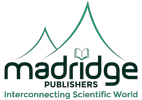Editor Name: Reshef Tenne
Designation: Scientist and Emeritus Professor
University: Helen and Matrin Kimmel Center for Nanoscale Science
Country: Israel
Biography: Prof. Tenne’s research interests focus on the synthesis, characterization and applications of novel inorganic nanomaterials nicknamed Inorganic Fullerene-like structures-IF and inorganic nanotubes (INT). These nanostructures were discovered in his laboratory in 1992 and form a new and ever expanding class of materials. His research into these materials was published in a large number of publications most notably in Nature and Science.
To concur with the large number of applications of these materials he co-founded "NanoMaterials" (2002) which was recently acquired by N.I.S. (www.nisusacorp.com). Manufacturing and sales of lubricating products based on this technology (nicknamed “Nanolub”) in both Israel and recently in the US are expanding. Sales of these products are expected to reach 5000 metric tones/year (2016) and reach 10,000 metric tones/year in the next few years. Further R&D research will possibly bring to the marketplace numerous other products, mostly based on different polymer nanocomposites.
Prof. Tenne studied in the Hebrew University and was a post-doc in Battelle Institute in Geneva. He joined the Weizmann Institute in 1979 and was promoted to a full professor at 1995. He published some 300 original papers and about 60 invited chapters in books and review articles. He is a well sought after speaker with more than 15 annual invited, keynote and plenary talks in international and national conferences and meetings. He was the head of the Department of Materials and Interfaces of the Weizmann Institute and the Director of the Gerhard M.J. Schmidt Minerva Center for Supramolecular Architecture (2001-2007), the Director of the Helen and Martin Kimmel Center for Nanoscale Science (2003-) and holds the Drake Family Chair of Nanotechnolgy (2005-). He seats in the boards of numerous international journals devoted to materials science and nanotechnology. He became Fellow of the World Technology Network in 2003 and was awarded the Kolthoff Prize of Chemistry of the Technion (2005); the Materials Research Society (MRS) Medal (2005); the Rafael Prize for Excellence in Science of the Israel Vacuum Society (2005); the Landau Prize for Nanotechnology by the Israeli Lottery (2006). He was elected as MRS (inaugural) class of Fellows (2008); received the Israel Chemical Society Excellence Award (2008) and the European Research Council Advanced Research Grant (ERC-AdG inaugural cycle- 2008). He became a Fellow of the Royal Society of Chemistry, was elected to the Israel Academy of Sciences and Academia Europaea in 2011 and received the CNR Rao Prize of the Indian Chemical Research society in 2012; the Chinese Academy of Sciences-Plenary Speaker award of NanoChina 2011 and the award of the best paper of the year of the Inst. of Civil Eng. (UK) in 2014. He recently received the Rothschild Prize for Physical and Chemical Sciences for 2016 and the Israel Chemical Society Gold Medal Award which is its highest distinction in 2015.

